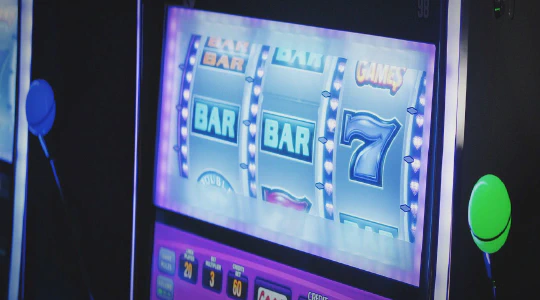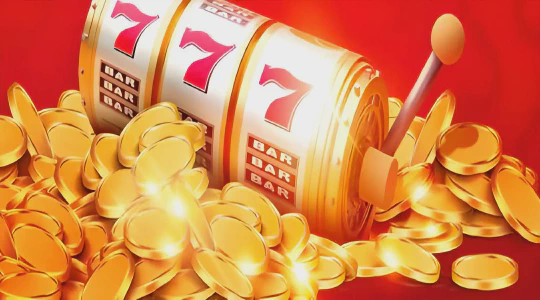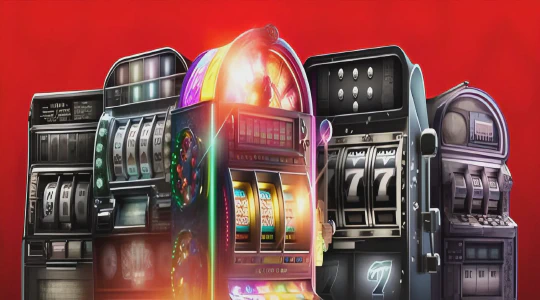How Many Poker Chips Should You Allocate Per Person in Your Game?
Playing poker is a fun and exciting activity that can bring friends and family together for an enjoyable game night. However, it’s important to ensure that everyone has an equal opportunity to play and win, which is why it’s crucial to have the right number of poker chips per player.
Determining the correct number of poker chips can be a daunting task, especially if you’re new to the game or haven’t hosted a poker game before. Too few chips may limit playtime, while too many can cause confusion or slow down the game. That’s why we’ve created this guide to help you balance your game perfectly.
Whether you’re hosting a casual game at home or a high-stakes tournament, this guide will provide you with the insight you need to make sure everyone has a great time. From the number of chips per player to the type of chips you should use, we’ll cover everything you need to know to make your poker game a success. So, let’s shuffle up and deal!
Why it's Important
Having the right amount of poker chips per person is crucial for a balanced and fair game. Without enough chips, players may be tempted to play conservatively or not take risks, leading to a boring game with little excitement. On the other hand, too many chips could lead to reckless betting and a game that ends too quickly.
Additionally, the number of chips per person can affect the overall atmosphere at the table. If some players have significantly more chips than others, it can create an unfair advantage and lead to tension or resentment among players. By ensuring that everyone has an equal amount of chips, you can create a friendly and enjoyable game where everyone has an equal chance to win Mostbet.
Not only does having the right amount of chips per person create a better game experience, but it can also help to keep track of the game's progress and anticipate when it may end. By counting the total number of chips in play at the beginning of the game and distributing them evenly amongst players, you can estimate how long the game will last and plan accordingly.
Factors to Consider
Before determining the number of poker chips per person for your game, there are several factors to consider:
- Game length: How long do you expect the game to last? If it's a quick game, you may not need as many chips per person compared to a longer game.
- Number of players: The more players you have, the more chips you'll need. Consider the maximum number of players that could join your game.
- Buy-in amount: The buy-in amount will impact the number of chips each player receives. If the buy-in is high, players will typically receive more chips.
- Type of game: Different poker games have different rules and betting structures. Understanding the game type can help you determine the number of chips needed per player.
- Player skill level: If your players are seasoned poker players, they may require more chips to keep the game challenging.
By considering these factors, you can determine how many poker chips per person will be needed for your game.
Calculating Chip Distribution
Calculating chip distribution for your poker game is a key factor in ensuring that your players have enough chips to continue playing for the duration of the game. To begin with, you need to determine the total number of chips you want to use in your game. This depends on the number of players and the length of the game. Typically, each player will need around 40-50 chips for a 3-4 hour game.
Once you have calculated the total number of chips, you need to determine the denominations of the chips. It's best to have at least three different denominations to ensure that the game can be played smoothly. Typically, the denominations are divided into low, medium, and high values. For example, if you decide to use 300 chips, you might have 100 chips of each denomination: 25 cents, 50 cents, and 1 dollar.
Next, you need to determine the initial chip distribution for each player. A good rule of thumb is to start each player with around 1,500 chips. This will allow them to make several bets before they need to purchase additional chips. The exact number of chips will depend on the number of players and the total number of chips available.
Finally, you need to determine the rules for chip buy-ins during the game. If a player runs out of chips, they can purchase more from the host or from a designated dealer. Typically, each player can only buy-in once, and the amount they can purchase is limited to a certain number of chips. These rules should be agreed upon before the start of the game to ensure that all players are on the same page.
Examples of Chip Distribution
Example 1: Standard Set
A standard set of poker chips usually consists of 500 chips with the following distribution:
- 150 White chips (worth $1 each)
- 150 Red chips (worth $5 each)
- 100 Green chips (worth $25 each)
- 50 Blue chips (worth $50 each)
- 50 Black chips (worth $100 each)
This distribution provides enough chips for up to 5 players.
Example 2: High Stakes Set
A high stakes set of poker chips usually consists of 1000 chips with the following distribution:
- 100 White chips (worth $1 each)
- 300 Red chips (worth $5 each)
- 300 Green chips (worth $25 each)
- 200 Blue chips (worth $50 each)
- 100 Black chips (worth $100 each)
This distribution is suitable for games with higher stakes and provides enough chips for up to 10 players.
Example 3: Custom Set
If you want to create a custom set of chips, you should consider the number of players, the buy-in amount, and the denominations you want to use. Here's an example of a custom set for a game with a $50 buy-in:
| Denomination | Number of Chips | Total Value |
|---|---|---|
| $1 | 100 | $100 |
| $5 | 50 | $250 |
| $10 | 50 | $500 |
| $25 | 25 | $625 |
| $50 | 10 | $500 |
This distribution provides enough chips for up to 10 players, with room for rebuys.
Custom Chip Sets for Personalized Poker Games
If you're looking for a unique playing experience, consider investing in custom chip sets for your poker games. These sets can add a personal touch to your game, whether you're hosting a casual game night with friends or organizing a professional tournament.
Custom chip sets can be designed to fit your preferences. You can choose the color, design, and denomination of the chips. Some sets even allow you to add logos or text to the chips, making them perfect for special events or businesses.
Additionally, custom chip sets can help prevent theft or confusion during games. Since each player will have their own set of chips with a unique design, it will be easy to keep track of who owns what and prevent disputes.
- Choose the color, design, and denomination of your chips.
- Add logos or text to make them unique.
- Prevent theft or confusion during games with personalized sets.
Overall, custom chip sets are a great investment for any poker player looking to add a personal touch to their game. Whether you're looking for a casual night with friends or a professional event, customized chips can enhance the experience and provide a more unique and enjoyable game.
Common Mistakes to Avoid
1. Not having enough chips
One of the most common mistakes to avoid is not having enough chips. Make sure you have a sufficient amount of chips for the number of players and the stakes you are playing. This will help avoid having to constantly exchange chips or running out mid-game.
2. Using chips with similar colors or denominations
Using chips that have similar colors or denominations can be confusing for players, especially those who are new to the game. Make sure to use chips with distinct colors and denominations to avoid confusion and ensure a smooth game.
3. Not establishing clear rules and guidelines
Before starting the game, make sure to establish clear rules and guidelines for all players to follow. This can include rules for betting, raising, and other aspects of the game. Without clear guidelines, misunderstandings and disputes can arise, causing the game to become chaotic.
4. Allowing players to buy back in multiple times
Allowing players to buy back in multiple times can lead to an unfair advantage for those with more resources. If you do allow buy-ins, limit them to one per player to ensure that everyone has an equal chance of winning.
5. Not considering the value of the chips
Make sure to consider the value of the chips you are using when setting up the game. If the chips hold little value to the players, they may not take the game as seriously or play conservatively. Consider using chips with a higher value to increase the intensity and competition of the game.
- Overall, by avoiding these common mistakes, you can ensure a fair and enjoyable poker game for everyone involved.
Adjustments for Different Game Types
When determining the appropriate number of poker chips per person, it's important to take into account the specific game type you'll be playing. Different games will require different amounts of chips in order to maintain balanced gameplay.
For example, a typical Texas Hold'em game with 6-10 players will require around 500-1000 chips. However, if playing a more casual game with friends, you may be able to get away with fewer chips. On the other hand, if playing a tournament-style game, you may need to plan for players to be eliminated and adjust accordingly.
Another important factor to consider is the stakes of the game. If playing for higher stakes, you may want to allocate more chips per person in order to provide a more substantial bankroll. Conversely, a lower-stakes game may require less chips per person in order to avoid players being overwhelmed with too many chips.
- Limit vs. No-Limit: A limit game may require more chips per person, as players are more likely to call each other's bets. In a no-limit game, players may be more inclined to fold, meaning fewer chips may be necessary.
- Cash Games vs. Tournaments: Cash games tend to require more chips per person, as players can always buy in for more. In a tournament, players are limited to their starting chip stack and the number of players remaining may affect the appropriate chip count per person.
- Other Game Variations: Different poker variations may require different chip counts. For example, Omaha may require more chips per person than a game of 7-Card Stud.
Ultimately, there is no one-size-fits-all answer when determining the perfect number of poker chips per person. It's important to take into account the specific game type, stakes, and any other variables that may affect gameplay. By doing so, you can ensure a balanced and enjoyable poker experience for all involved.
Adjustments for Different Player Skill Levels
When it comes to determining the number of poker chips needed per person, the skill level of the players should also be taken into account. For inexperienced players who may not be familiar with the game, supplying a greater number of lower denomination chips may be beneficial. This will allow them to make smaller bets and avoid quickly losing all of their chips.
On the other hand, for more experienced players who may be more comfortable with larger bets, it may be wise to provide a larger number of higher denomination chips. This will enable them to make larger bets and potentially win bigger payouts.
Additionally, when playing with a mix of skill levels, it may be helpful to provide a variety of chip denominations to accommodate everyone's betting preferences. Consider including a range of chip values, from low denominations like $1 to high denominations like $500, to provide flexibility for all players.
Ultimately, the goal is to create an enjoyable and balanced game for everyone involved, regardless of their skill level. By considering the skill level of your players and adjusting your chip distribution accordingly, you can ensure a fun and fair game for all.
Adjustments for Different Game Lengths
If you're planning a longer game of poker, you'll need to adjust the number of chips per person accordingly. For a game lasting several hours or more, consider increasing the number of chips per person, as players will likely need to replenish their chip stacks throughout the game.
On the other hand, for a shorter game or a tournament with a set time limit, you may want to decrease the number of chips per person in order to create a faster-paced game and prevent players from becoming too comfortable with their chip stacks.
It's also important to consider the blind structure and how that will affect gameplay over time. For a longer game, you may want to increase the blinds at a slower pace to allow players to make more strategic decisions and prevent players from being eliminated too quickly. For a shorter game, a more aggressive blind structure can create a more exciting game with higher stakes.
- Adjust the number of chips per person depending on the length of the game
- Consider the blind structure and adjust it accordingly to create the desired pace of play
- Take into account the desired level of strategic decision-making and excitement when planning the game's structure
Rebuy and Add-Ons Considerations
Rebuy
Rebuy means buying back into the game if you have lost all your chips. It is up to the host to decide whether rebuys are allowed, how many, and when. Rebuying is an excellent option to keep players engaged and the game more exciting. However, you must be clear on the rules before beginning the game.
Typically, hosts allow rebuys during the first few levels of the game. It's up to the host to decide how many chips you receive when you rebuy. One common rule is that the rebuy amount should be the same as the initial buy-in and that you receive the same amount of chips as everyone else at the table.
Add-Ons
Another consideration in poker games is add-ons. An add-on is an option to purchase additional chips at a predetermined point in the game, regardless of whether you have chips in your stack or not. The host must decide whether add-ons are allowed, how many, and when. Typically, add-ons are allowed after the first few levels, and you'll get a fixed number of chips for your purchase.
Players should be informed of the rules surrounding rebuys and add-ons before beginning the game. Knowing these rules will help the game proceed fairly and smoothly, and everyone can have a good time.
Dealing with Late Arrivals and Early Departures
Arrivals
It's important to set a clear start time for your poker game. However, sometimes players arrive late due to unforeseen circumstances. If a player arrives after the game has started, it's best to wait for a natural break in the action before allowing them to join in. This prevents the late arrival from disrupting the game and ensures that everyone starts on even ground.
If the late arrival misses the first round of betting, you can allow them to post a "big blind" to catch up with the other players. Alternatively, you can let them sit out the first few hands and start playing when the blinds rotate back around to them.
Departures
Similarly, players may need to leave the game early for various reasons. If a player needs to leave before the game is over, it's important to handle their chips and any outstanding bets properly.
If a player has chips remaining at the end of the game, they can either cash them out or save them for the next game. If a player leaves mid-game, their chips are typically removed from play and cannot be cashed out until the end of the game.
It's also important to handle any outstanding bets from the departing player appropriately. If a player has placed a bet but needs to leave the game early, they can either forfeit the bet or have another player "call" the bet and keep the game going without them.
- Tip: It's always helpful to communicate with your players before the start of the game about how you will handle late arrivals and early departures to avoid any confusion or disputes during the game.
Managing Chip Shortages and Surpluses
During a poker game, it is common for chip shortages or surpluses to occur. These can disrupt the flow of the game and affect the overall experience for players.
To manage a chip shortage, one option is to purchase additional chips or redistribute the existing chips among the players. It is important to ensure that each player has enough chips to continue playing without altering the game too much.
In the case of a chip surplus, the extra chips can be stored aside or used to increase the value of the blinds and antes. It is important to maintain balance in the game to prevent players from gaining an unfair advantage.
Communication among players is key when managing chip shortages or surpluses. Players should discuss any issues and come to a fair resolution that does not drastically alter the game.
- Purchasing Additional Chips: If a chip shortage occurs, the game can be paused while additional chips are purchased. Each player may contribute an equal amount to the purchase or one player can cover the cost.
- Redistributing Chips: If there are not enough chips for each player to continue, the existing chips can be redistributed to ensure that each player has an equal amount to continue playing.
- Storing Extra Chips: If there is a chip surplus, the extra chips can be stored aside and used as needed. This can also provide a backup in case of a future shortage.
- Increasing Blind and Ante Value: If there is a chip surplus, the value of the blinds and antes can be increased to increase the stakes of the game. This can also help to shorten the length of the game.
How to Rebalance During the Game
During a game of poker, it's important to pay attention to the number of chips each player has to ensure a fair and balanced game. However, sometimes players may become unlucky or overly successful, causing an imbalance in the chip distribution. If this happens, it's essential to know how to rebalance the game to even the playing field.
One way to rebalance is to announce a chip race. This involves exchanging small denominations of chips for larger ones so that each player has a more significant amount to play with. Another method is to implement a mandatory bet. This encourages players with more chips to bet aggressively to balance out their chip stack with other players.
Additionally, a time-based tournament structure can be challenging to balance. One way to address this is to introduce a break after a certain number of rounds and have all players exchange an equal number of chips to even out the distribution.
Overall, rebalancing during a game of poker is crucial to maintaining fairness and keeping the game competitive. By implementing strategies such as chip races, mandatory bets, and time-based exchange, you can ensure an exciting and balanced game for all players involved.



